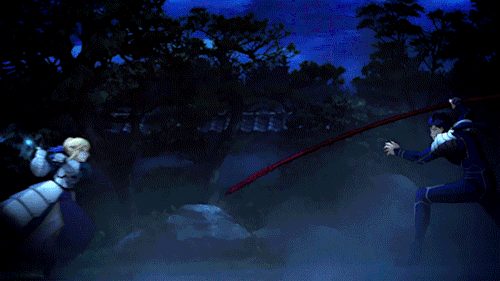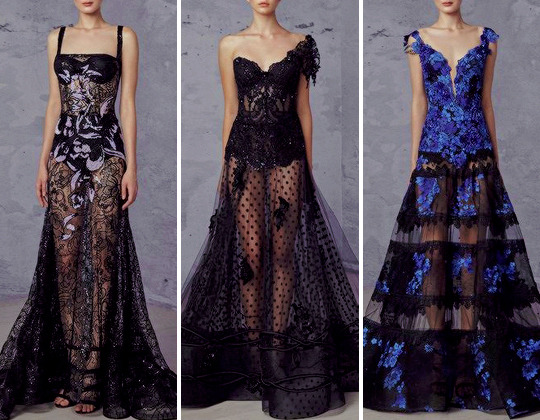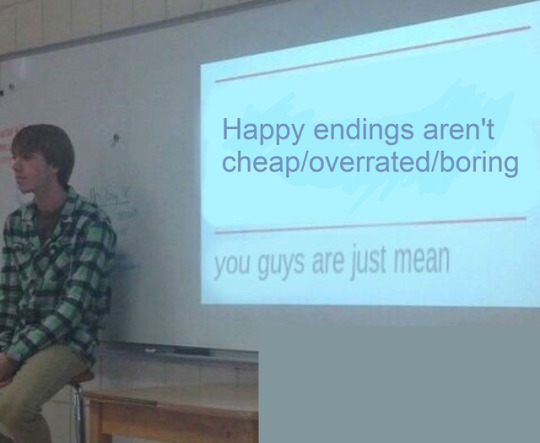Text
WHILE understanding that a hereditary ruling class is a fuck-stupid thing to have IRL, I have no intention of leaving off reading and writing about secondary-world nobles and/or royalty. It lets you elevate family drama to extremely weird levels and really raise the stakes on questions of obligation, tradition, inheritance, and being tied into a job you actually might fucking suck at. Feels like all my life I’ve been seeing finger-wagging about how it’s more virtuous to write about regular folks, and how dumbass fantasy fans just project themselves onto princes and princesses because they’re in denial that their ancestors did physical labor, and I’m like, “irrelevant. Sometimes you just want to see sibling rivalry escalate to stabbings”
34K notes
·
View notes
Text
If you’re writing about a character who’s rich and has a big house, and you’re writing in any sort of historical setting, I can’t help but feel that you’re missing an opportunity if you never talk about the Guests.
In a modern context, big houses rarely serve any narrative purpose beyond jokes about rooms nobody has ever been in, but historically, all that extra space had an important function. Apart from families generally being larger and multi-generational households being the norm, hospitality was a major part of a wealthy household’s basic social obligations. Travel was time-consuming and expensive, and obviously your rich buddies couldn’t just rent a room while they were in town (how gauche!), so you’d be expected to put them up for as long as they cared to stay. Indeed, being able to put up lots and lots of guests was one of the basic ways you demonstrated your high status.
This expectation of hospitality extended beyond your immediate social circle, as well. If you were the big name around town, you could expect to have government officials, artists and philosophers, travelling nobility, and the like hitting you up for a spare room on very little notice, and you had to be very careful about saying “no” because refusal might be construed as a snub – or worse, an admission that you can’t afford it! The upshot is that, at any given time, a large household might be playing host to a bewildering assortment of friends, relatives, friends of relatives, relatives of friends, celebrities both far-ranging and local, dignitaries, con artists, miscellaneous weirdos, and that one guy who nobody can quite place, but whose presence everyone is too polite to question.
(The miscellaneous weirdos are a big part of it, in fact. If you’ve ever wondered how someone makes a career out of something like “being France’s most famous lover”, that’s basically how it worked: you’d use your outlandish reputation to prevail on some random wealthy jerk’s hospitality, hang around their house as an “honoured guest” for a couple of months, then discreetly move on before you wore out your welcome and repeat the whole process somewhere else. There was a whole class of people who made lifelong careers out of being entertainingly weird guests.)
Like, sure, there’s no obligation to get into any of that if domestic affairs aren’t the focus of your story. However, if you are keeping the plot close to home, it’s something where a little bit of extra thought can pay large dividends. Keep it in mind when you’re plotting out that Pride and Prejudice Batman AU next time!
33K notes
·
View notes
Text
Reasons for your characters to be in close proximity
They’re art students who both stay late at the studio to work on their pieces.
They’re the only night shift workers at their job.
They’re college students who study in the shared kitchen at 3am because they’re insomniacs and that’s the only time that it’s quiet.
One of them is responsible for the other person not being able to take their car to school / work so they decide to carpool to make up for it.
One of them is an up and coming musician and the other is a producer who’s helping them make their first album.
One of them is the carer for the others elderly relative.
They live in a dorm that has a communal bathroom.
They both go on coffee runs to the same place at the same time for their respective jobs.
They’re judges for a week(s) long competition.
They’re both lawyers for a couple going through a messy divorce.
A is responsible for B getting injured, so they take care of them until they get better.
They’re at a summer camp and both spend most of their time with the nurse due to their allergies.
A owns a motel that B frequently visits with their hookups.
A spends their summer in a foreign country to teach a B and their family A’s first language.
A plays the main character in B’s indie movie.
They both have neighbouring stalls at a local market.
They’re on the same sports team.
Their kids keep fighting each other in school, so A and B meet many times in the principals office.
A babysits B’s younger sibling(s).
A’s family constantly hires B to do odd jobs around their house.
Also see:
Enemies to lovers masterlist
Reasons for your characters to hate each other
1K notes
·
View notes
Text
How to write better descriptions
1. Avoid weak words
Compare these:
He ate the sandwich
She walked towards the lake.
to these:
He devoured the sandwich
She strolled towards the lake.
Which sentences tells you more? The latter ones. Why? Because devoured and strolled are stronger words than ate and walked. They’re more specific, so they give you more information. To get across the same information with ate and walked, you’d have to add more words: ‘she walked slowly,’ ‘he ate quickly.’
Obviously this isn’t saying you can only ever use strong words–that would likely quickly devolve into purple prose–but If your descriptions only ever include general terms: ‘it smelled good’ ‘he walked over to greet her’ etc. you’re making it harder for your reader to get an accurate picture of whatever is happening in your scene.
So how do you spot a weak word? The biggest problem with (and easiest way to spot) a weak word is that it needs support from other words to really get its meaning across. If you find yourself adding adverbs and adjectives to a term, question whether or not there’s a more concise way to get your point across instead.
2. Be Specific Where Details Are Important
This isn’t to say you should describe everything in every scene in perfect detail, but being specific matters.
Which is more engaging?
He devoured the sandwich
The book smelled magical.
or
He devoured the sandwich, stopping only to lick up the melted cheese that seeped through his fingers and ran down his palm.
The book smelled like a sunlit afternoon.
Again, the latter ones. They take you into the scene. They evoke the senses. It’s the difference between telling and showing. Devoured is a strong verb, but it doesn’t give us a clear image of what is happening. Showing the character licking away the cheese gives the reader a sense of the desperation and hunger of the action. Evoking a sunlit afternoon is evoking your reader’s memories of their own sunny afternoons.These examples are statements with evidence. They provide details.
You want to invite your reader into the scene, not give them a summary of the events.
Additionally, specifics make the world feel real. They convince readers that the world actually exists. They keep the story in your readers’ minds once they’ve finished reading.
This being said, don’t pull a GRRM and describe every meal your characters eat. Some things just aren’t that important. There are MANY occasions when it’s okay to tell instead of show.
3. Remember the point of view.
Who is giving the description?
If you’re writing in 1st person or 3rd person limited, remember how your character feels about what you’re describing. If you’re describing a strawberry field, a person who was raised on a strawberry farm is going to see it differently than someone who is deathly allergic to strawberries, who is going to see it differently from a Beatles fanatic.
Maybe the Beatles fanatic is deathly allergic to strawberries and this field brings up a whole bucketful of conflicting emotions.
Which is all to say:
Good descriptions reveal character as well as scene.
If this description is coming from a character’s point of view: what is that point of view? What is this scene making your character feel? Don’t let your narrator slip away from the page.
This connects to my last point.
4. Remember why you’re including it.
Novel writing is persuasive writing. It’s an exercise in persuading your reader that your story is true, that your characters are real people. It’s an exercise in persuading your readers to feel what you want them to feel.
(There’s a well-known quote about this somewhere, but I can’t remember it exactly.)
Every description must add to the story. It should be doing something: working for some larger goal, advancing the plot, revealing character.
Maybe you’re describing a house because you want your reader to see why your character doesn’t want to move.
Maybe you’re describing this lovely-smelling book because you want the reader to know that it’s important to the character. That her favorite memories are of reading it in the attic of her grandmother’s house.
When you’re writing out a description, identify its purpose and make sure it fulfils it.
It’s okay if at first you don’t know how the house makes the character feel, or if she’s running or strolling towards the lake, or why the book is so important. Sometimes you just know it’s there. That something happened. Usually things become clearer as you write further and get to know the story and characters yourself.
Once you do know what you’re trying to say with your story, make sure you say it with every chapter, every description, and every word.
20K notes
·
View notes
Text
Entre la luz y la oscuridad, la pastilla roja o la azul, realmente no lo se, y el miedo que tengo atascado en el pecho no ayuda mucho a que esta pesadumbre acabe pronto, no encuentro la salida, no hay vía de escape a este confuso y crudo laberinto al que llamo vida, no encuentro más a donde ir. Es un sin sentido, mis demonios me empujan a a lo más profundo de mi averno, me adentro, me persigo, es un torbellino de sentimientos, abro los ojos y no veo más que una pequeña y difusa luz a lo lejos, no es una absoluta oscuridad, es mi percepción, el augurio de mi desespero esperando ser liberado, que finalmente estas cadenas se rompan y así mi alma pueda extender sus alas y volar libre al fin.
-Morpheus & El Ángel Caído de Ciudad Gótica
39 notes
·
View notes
Text
Era de noche y estaba oscureciendo. Vi mi reflejo en la luna y susurré un deseo que flotó, colándose en tus oídos, llegando a tu corazón. Y sin más cerré los ojos, respiré y mi alma me abandonó igual que la última vez que lloré.
- Anónimo 1
#texto#desesperacion#alma#poem#escribir#anónimo#anonimo1#anónimo1#escritos#escritura#dolor#sentimientos#luna#poema
0 notes
Text
“I’m finally going to write! I have a great idea!”




600K notes
·
View notes
Text
Writing an action scene-
In your head:

Trying to describe it like:

68K notes
·
View notes
Text
this town ain't big enough for the two of us.....
22K notes
·
View notes
Text
Writing Advice: it doesn’t matter if an idea has been done before. It’s never been done by you. So long as you do it well, and in your own way, it’s a wonderful contribution.
246K notes
·
View notes
Text
my wip has so much potential to be amazing. I just need to… you know… actually write it.
831 notes
·
View notes
Text
20 Mistakes To Avoid in YA Fiction/Romance

* This is a re-upload due to the original being flagged a few months ago for having a gif of two teenagers…*GASP*… dancing. What, tumblr? What is “adult” about that? The post has been in appeal for 4 months, and I have a feeling it won’t leave, so I decided to finally repost it.
–
YA Fiction is an incredibly popular genre of literature, and most people have picked one up and devoured it in less than a day, but there is a trend in the genre where in certain instances, people forfeit quality for a cheesy dramatic plot. A lot of these stories are just regurgitated cliches with vaguely interesting characters and just enough drama, fluff, and mildly (or extremely) sexual content to keep the reader paying attention. (No shade to the authors, because obviously, any author who writes and publishes a book works hard, no matter the end product.)
There are a lot of aspects of YA Fiction that repeatedly rear their ugly heads and annoy readers or flat out scream dangerous messages to the young people that indulge in them. I thought I’d put the spotlight on a few in the hopes that it will help clean up the genre’s reputation as new and more awakened authors contribute content to it.
Below you will read about some common mistakes that YA Fiction/Romance writers make that either ruin the story, promote dangerous messages, or unrealistically portray teenagers.
Forgetting The Supporting Characters
The supporting characters are an important part of any story, even if the main plot revolves around two people. Supporting characters provide subplots, information to the reader, and more opportunities for your audience to connect and relate to your story. It’s always good to give your supporting characters love and attention when creating and writing them. Sometimes they end up carrying the story.
A mistake that a lot of authors make is that they give the reader a couple defining characteristics, a name, a relationship to the main character, and then just make that character pop into the reader’s view whenever the main plot needs them to. No backstory. No life of their own. Just support to the plot, and that’s a huge waste of potential. You don’t want your readers to put down your book and either forget the supporting characters existed at all, or believe that they were extra pieces of a puzzle.
Using Slang Badly
Writers should not feel the need to include current slang in order to make their story more relatable or popular amongst their targeted demographic. Slang is constantly changing, evolving, and most importantly, dying. Not to say that you should only write in traditional terms or put “thy” and “thee” everywhere, but using standard English and avoiding the trendy but temporary slang words is key.
If you must use slang, try to use the bare minimum and only in fitting circumstances. If your character is the type to say “OMG her dat boi memes are on fleek” then, by all means, go right ahead, but you probably cringed when you read that. That would have been totally normal 2 years ago, but every bit of that sentence has died over time, and no matter how much you think a slang word will stick, don’t risk it.
Sympathy and Envy Mongering
Two emotions that YA Fiction and Romance always try to invoke in their readers are sympathy and envy. The author either wants the reader to feel bad for one or many of the characters, or they want them to be jealous of the awesome (and usually unrealistic) lives the characters have. Don’t be one of these. It’s tired and boring and not original in the slightest.
Are sympathy and empathy both totally okay emotions?
Yes.
Are they all you need to write a good story?
Nope. Not at all.
The reader needs and wants to feel more than jealous of and sad for the characters in the story. The best stories are the ones that trigger a complex whirlwind of emotion. Sympathy and envy are the easy way out, and you get out of those emotions what you put into them.
Unrealistically Portraying Teenagers & Teenage Life
Teenagers look up to and compare themselves and their lives to the characters and lives of the characters in your story. Keeping in mind that your audience is young and impressionable is essential for authors of the genre.
Love At First Sight
Love-at-first-sight does not happen. Infatuation, maybe, but love is more complicated than that. Writing a plot based on “love at first sight” can leave a bad taste in your readers’ mouths from the start, and that is something you should avoid at all costs. On top of that, love-at-first-sight is a very easy-way-out move and if you’re dedicated to your characters and your story, there’s a good to fair chance that you can come up with a more satisfying build up.
Unrealistic Romantic Situations
If you’ve ever opened a YA Romance, chances are you’ve read a scene in which the protagonist and the love interest end up in a stunningly beautiful place and the love interest sweeps the protagonist off their feet prior to riding into the sunset. This, unfortunately, does not happen very often, especially in teenage relationships. The most romance you’re going to get (usually) is the love interest offering to pay for the protagonist’s bag of skittles with the leftover money from their paycheck they earned at McDonald’s.
Just because teenagers don’t really go to great lengths to rent an entire ice-skating rink in the middle of the night so they and their crush can skate to Ellie Goulding music doesn’t mean there can’t be cute and memorable moments. Great doesn’t always equal grand and that’s important to remember. A lot of the time, teenagers appreciate fantasizing about things that are actually possible.
Happy Endings
Not all stories have to end happily, and you’ve definitely been told this before, but nobody ever takes into account how stories about teenagers have so much potential when it comes to endings. Teenagers read books about teenagers and unfortunately, this means that a lot of them will take what you’re writing about and try to change their own lives to match. Be honest in your depiction about what actually happens when you leave high school.
The majority of the time, high school sweethearts won’t stay together. Long distance won’t work, they’ll find someone else, the spark will die out, their personalities will undergo drastic changes, and their goals and plans for the future will turn out differently than they expected. “And they lived happily ever after” is criticized harshly for a reason, especially in YA and YA Romance. Most stories don’t end happily, but there is more than one story in a person’s life and giving a person their happy ending as they graduate high school is a great injustice, to your character and your readers.
Avoiding The Dark Parts Of Teenage Life
Teenagers, despite what a lot of the media claims, go through some really serious and stressful and damaging things. Teenagers suffer from mental illness and deal with the intense pressure of the education system and hold their heads high in the face of stigma over every little detail about them. They suffer from eating disorders and body dysmorphia and self-harm tendencies, and that doesn’t even bring into account the bullying and family issues and the stress of constantly learning and feeling things for the very first time with little to no guidance or assurance or resources to ask for help. It is hard being a teenager. Do not forget that, and don’t leave the actual teenagers reading your story feeling underrepresented and/or abnormal because they aren’t as stress-free as the characters they look up to.
Exaggerating How Teenagers Interact With Each Other
A lot of teenage interactions are short, awkward, and uneventful. Teenagers aren’t super eloquent and socially apt, but YA Fiction seems to believe they are. It’s quite rare that a teenager will just walk up to someone they like, say “wanna go to dinner on Saturday?” and all will be fine and dandy. It’s quite rare that a teenager will saunter up to someone who talked about them behind their back, say something super clever and damaging to their enemy’s ego, and saunter off like the king/queen of the world. Those interactions look great in our heads, but they usually contain a few stuttered words and “um”s and blushing. Confidence is usually a trait that people develop later in life, so try not to push it if you’re trying to be realistic.
Maturity of Teenagers
Teenagers are underdeveloped human beings with minimal experience in most areas of life. They do not have it all figured out. A lot of YA books revolve around characters that are extremely intelligent, disciplined and ambitious at a level of maturity a 25-year-old be on. This is not accurate. Making characters “awkward” or “childish” does not have anything to do with how mature they seem to readers. There is a distinct difference between an awkward girl with childlike innocence and a girl who makes mistakes, does not have her life figured out, and is not yet comfortable with casual social interaction. The latter things I mentioned are pretty universal when it comes to teenagers.
Unfitting Aspirations
There are more than two paths in life. It seems that in YA you’re either going to graduate, get married, pop out a couple kids and live the rest of your life in the suburbs, or you’re going to leave home, go to college, travel for 20 years and settle in some random country in Europe writing poetry until the end of your days. There is no in between, which sucks. There are a lot of interesting things you can do in life, not to say that either of the two life paths I mentioned are uninteresting. You could take a gap year and travel the world, go to college, move back home for a couple years then maybe get a job that has you traveling and exploring new things for the rest of your life. You could meet the love of your life in college and have some kids but put them in online school so you could travel with them. You could live your whole life in an awesome cabin in the forest casting spells and adopting wild squirrels. There are so many ways life can be and restricting it to opposite extremes takes the imagination out of the future.
Not All Teenagers Think Their Relationships Will Last Forever
This one is pretty self explanatory, so long story short, not every relationship a teenager enters into is with the end goal of staying together forever, or even more than a few months. Most teenage relationships are pretty short and not very meaningful, and portraying every single couple in your stories as “we’ve been going strong for 2 years and plan on getting married right after graduation” is inaccurate and will probably cause your readers some disappointment in the future.
Relationships Aren’t A Teenager’s Only Concern
Most teenagers are more concerned about the F they got on a History test than they are about who they’re going to stare at next period. Everyone has more than just their crush to worry about. Some teenagers have to worry about where they’re going to get their next meal or how they’re going to get a ride home from school or even how they can apologize to a friend they’ve hurt. It’s not all about relationships for teenagers, in fact, relationships are a pretty small part of teenage life. If all your character has to think about is the hottie they sit next to in Biology, perhaps you should work a little more on character development.
Unnatural Appearances
Most teenagers are not model-level attractive. All teenagers have break-outs and leave the house late with greasy hair or with their shirt on inside out. No teenager shows up at school every day looking absolutely flawless, as if they’re about to walk down the runway. Please keep that in mind, because portraying teenagers accurately, especially when it comes to physical aspects such as weight, acne, etc. is super important. In YA and YA Romance, you must keep in mind that the teenagers you are trying to appeal to should not feel like a piece of trash because they aren’t as perfect as your characters. Yes, YA Fiction is Fiction, but just because you know that it’s unrealistic doesn’t mean your readers do. Readers of YA Fiction compare themselves to the characters in your books whether you like it or not. It is not hard to realistically portray physical appearances of teenagers.
Avoiding Dangerous Messages
A common problem found in YA Fiction is the lacing of dangerous messages found in the smaller details. You may miss them the first couple times you read a story, but if you go looking for them, you will find them, and perhaps you will find the source of a lot of mistakes you’ve made. YA has a bad habit of endorsing mindsets that lead to bad decisions. Some of them, however, can be avoided in your own writing.
The Need To Change The “Flawed” One
Nobody in this world is perfect. Expecting the person you supposedly love to be flawless all the time is not realistic. People make mistakes. People are not always happy and bubbly and confident about themselves. People do not always act the same one day as they did the day before. Human beings are flawed and should be portrayed as such, especially in the stage of their life which is the most confusing and scary. Teenagers are underdeveloped human beings, and for some reason, teenager girls in YA Romance expect teenage boys to be charming and loving and never ever make a mistake, which is ridiculous. Creating love interests that appear flawless and can make no mistakes is detrimental to your audience. It raises your readers’ expectations to an unattainable level which causes them disappointment and might cause their future partners unrepairable damage to their self-esteem because they’ll think that in order to find a partner, they cannot be flawed and cannot make mistakes.
Glorification Of Illegal Activity
It’s not “cool” or “edgy” to pump yourself full of deadly and mind-altering substances you know absolutely nothing about. It doesn’t make you “badass” and it isn’t a personality trait unless that trait is stupid. Whatever your position is on drugs or alcohol or whatever, there is no excuse for putting the idea in the heads of young readers that doing things that are illegal and addictive and that might even get you killed is ok. Not only because most of your readers are younger than 21, but because it will always be dangerous to take drugs, commit crimes, and drink. Your choices are your choices. Don’t impose your habits and excuses on kids who don’t know any better.
Slut Shaming
News flash: it’s 2017, people. Nobody cares who you’re kissing or dating or having sex with. People are finally getting used to the idea that maybe, just maybe, it’s not the end of the world if you do whatever you want, as long as you’re not hurting yourself or anyone else. This recurring theme of “I hate this person because they do what they want with their body” is getting old and annoying. Believe what you will regarding religion and morals and what is right or wrong or whatever you want to believe in, but the second you start turning your story into a commentary on the decisions and beliefs of other people, you’re in the wrong. There are other, more creative reasons to make your characters hate each other than their sexual activity.
Forgetting The First Times
One of the most exciting parts of being a teenager is that everything you’re experiencing, you’re experiencing for the first time. Everything is confusing and exciting and 10x more painful or memorable or enjoyable, and that’s neglected all the time in YA. I don’t mean the common trope of the first kiss or the losing of virginity. I mean love and infatuation and loss and heartbreak; it’s all happening to them for the first time in their lives, and these events make up their memories that they will carry with them forever. Teenage years are incredibly heavy times for people. It is, after all, the years in which they learn the most and the fastest and where the majority of their brain development takes place. These moments that you’re writing, the first kiss, the first time having sex, the first time your character loses someone they love, they’re all going to determine how your character will develop in the future. Treat them that way. Teach young readers that it’s normal and perfectly okay to be scared and inexperienced and lost. That’s the bitter-sweet part of youth and it’s beautiful.
Bad Boys And Boring Girls
Bad Boys are, in reality, bad news. The real “bad boys” in this world are slimy, manipulative jerks who trick girls (usually more than one at a time) into thinking they have feelings for them, using them for things like sex or money, and then either end up controlling their entire lives, introducing drugs and problems, or breaking their hearts. It’s sad, but it’s reality. Yes, there’s always a cause for this behavior, and sometimes these bad boys grow out of it, but that’s not always the case. Portraying these bad boys as “changeable” is not only dangerous for the female readers but also the men in their future. If you make girls think that they can change whomever they’re with to be the perfect prince charming, they will never be satisfied with someone who is flawed (spoiler alert: everyone is flawed) and they may destroy the self-esteem of whoever they’re with by making them think they need to change to be lovable.
Boring Girls are, sort of, connected to bad boys in this sense. They show up in every story, which makes sense financially because authors who make more relatable main characters sell more books. It’s just demographics. But at the same time, this stretch for a wider audience can end up influencing girls’ expectations of themselves and their love lives. If you make every protagonist completely boring, compliant, and devoid of strong, defining traits, girls will take that as advice. They will learn that all a girl has to do to make people fall in love with them is sit quietly and be pretty, which is horrible, in case you hadn’t noticed. Teach girls to look up to strong characters with rich personalities. Nowadays, that counts as an original idea.
Generalization
Portraying every aspect of teenage life and teenagers themselves as if you opened a book full of cliches, closed your eyes and pointed at something is not ok. High schools and families and personalities are different wherever you go, and making blind generalizations about aspects of teenage life can not only change how your reader interprets their own lives, but how adult readers assume teenage life is when they’re not around. It is important to not reinforce the assumption that there is always a popular clique and mean jocks and awkward nerds and dead-beat stoners because these stereotypes are a way for people to justify their snap-judgements, and not only does that say a lot about you as an author, but that will breed a whole new generation of judgmental, close-minded people.
Glorification Of Unhealthy Relationship Behaviors
I’m gonna say this once: It is not “hot” to have the love interest constantly putting restrictions on their supposed loved one. It’s not okay to borderline stalk someone and use “I love you” as an excuse, even if the person reciprocates your feelings. It is unhealthy to ignore someone when they say “no, no, not now” or “no, stop, not here” when you’re in the middle of initiating sex or even just kissing. It is disgusting when romance, especially YA Romance, which has mostly young, impressionable readers taking in your messages, promotes these behaviors like they’re something to strive for. Like it or not, your writing is going to alter the way they imagine a “perfect” relationship. If you aren’t willing to take that responsibility seriously, you should not be writing YA, and especially not YA Romance.
Support Wordsnstuff!
FIND MORE ON WORDSNSTUFFBLOG.COM
If you enjoy my blog and wish for it to continue being updated frequently and for me to continue putting my energy toward answering your questions, please consider Buying Me A Coffee, or pledging your support on Patreon.
Request Resources, Tips, Playlists, or Prompt Lists
Instagram // Twitter //Facebook //#wordsnstuff
FAQ //monthly writing challenges // Masterlist
MY CURRENT WORK IN PROGRESS (Check it out, it’s pretty cool. At least I think it is.)
Check out my YouTube Channel!
1K notes
·
View notes
Note
how do u find the motivation to write all the time?

for real though, i rarely have motivation, i just push through and write anyways. writing is kinda like jumping into a pool-- it sucks, at first, but once you start it rapidly gets easier.
190 notes
·
View notes
Text
me putting a comma where it doesn’t belong: it’s sexy, it’s spicy, it adds a twist, a little color, a little interest
85K notes
·
View notes












